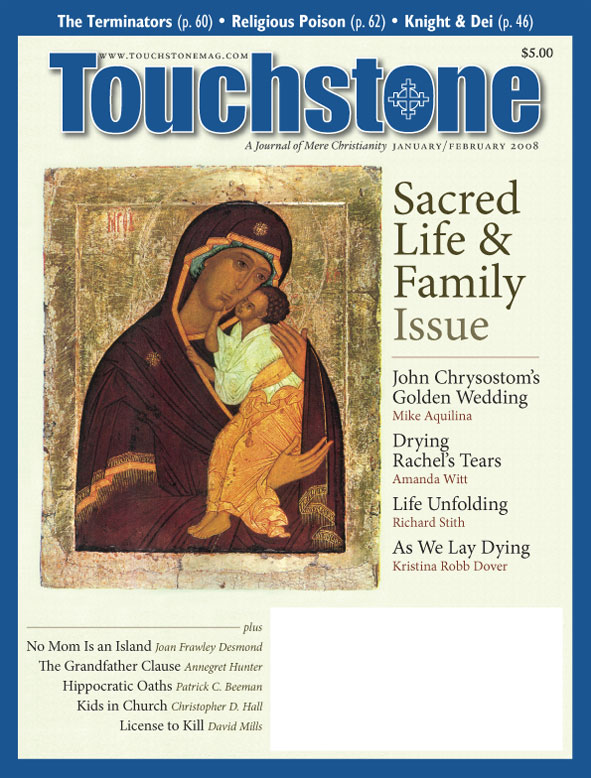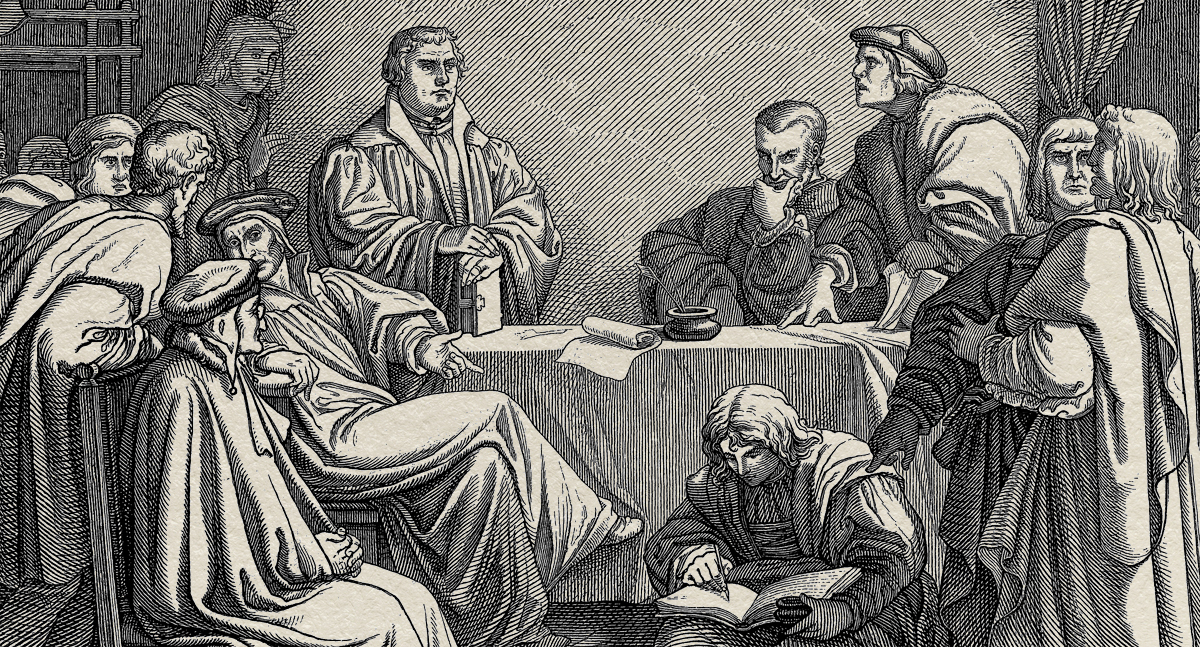View
Hippocrates Seduced
Patrick C. Beeman on the Loss of Life in Modern Medical Oaths
In solemnly reciting the short Hippocratic Oath upon his graduation from medical school (it is about 340 to 380 words long, depending on the translation), the new physician declares, “I will follow that system of regimen which, according to my ability and judgment, I consider for the benefit of my patients, and abstain from whatever is deleterious and mischievous.”
Lest there be confusion about what constitutes mischief, the oath continues, “I will give no deadly medicine to anyone if asked, nor suggest any such counsel; and in like manner I will not give to a woman a pessary to produce abortion.” These two foundational principles—prohibiting abortion and euthanasia—form the distinctive character of the oath.
You might imagine that when med school graduates don their long white coats for the first time (medical students wear short ones), they all swear by “Apollo the physician, and Aesculapius” (some versions substitute “The Almighty”) to uphold these principles. After all, the American Medical Association says that the Hippocratic Oath “has remained in Western Civilization as an expression of ideal conduct for the physician.”
Amended Hippocrates
You would be wrong. Few medical schools require students to swear this oath upon graduation, opting instead for the recitation of a different, more politically palatable but less venerable pledge.
First administered in 1508 at the University of Wittenburg’s medical school, the Hippocratic Oath gradually became incorporated as a formal graduation exercise on both sides of the Atlantic. In 1928, only 24 percent of schools in the United States and Canada administered the oath to their graduates, but after World War II, with the revelation of the atrocities committed by the Third Reich in the name of medical science, many more schools included an oath as part of the graduation rite.
In 1993, one hundred percent of American medical schools administered some oath to their graduates. However, few today actually use what could be called a “Hippocratic Oath,” one that preserves its original intent while updating the language. Only 14 percent of the new oaths (Hippocratic or otherwise) prohibit euthanasia, only 8 percent proscribe abortion, and only 11 percent invoke God.
At my medical school, first-year students learn about a number of alternatives to the original Hippocratic Oath: the Oath of Maimonides and the Prayer of Maimonides (neither by Maimonides); the Declaration of Geneva; and a handful of revisions of the Hippocratic Oath.
Both the Oath and the Prayer of Maimonides present life as something given by God to be served by the physician, stating, “Thou hast appointed me to watch over the life and death of Thy creatures.” However, neither offers practical advice on how to live this out, and neither mentions abortion or euthanasia.
The Declaration of Geneva, formulated in 1949 by the World Medical Association, conscious of the Nuremburg trials, begins with a “solemn pledge” to consecrate one’s life to the service of humanity. It then calls for such things as practicing medicine “with conscience and dignity” and maintaining patient confidentiality.
Patrick C. Beeman was formerly a lecturer in philosophy at Cleveland State University. He is currently the president of the Catholic Medical Students Association and in 2008 was a Pellegrino Fellow at the Georgetown University Center for Clinical Bioethics. He is a medical student at the University of Toledo and attends Holy Rosary Cathedral with his wife and two children.
subscription options
Order
Print/Online Subscription

Get six issues (one year) of Touchstone PLUS full online access including pdf downloads for only $39.95. That's only $3.34 per month!
Order
Online Only
Subscription

Get a one-year full-access subscription to the Touchstone online archives for only $19.95. That's only $1.66 per month!
bulk subscriptions
Order Touchstone subscriptions in bulk and save $10 per sub! Each subscription includes 6 issues of Touchstone plus full online access to touchstonemag.com—including archives, videos, and pdf downloads of recent issues for only $29.95 each! Great for churches or study groups.
Transactions will be processed on a secure server.
more on medicine from the online archives
more from the online archives
calling all readers
Please Donate
"There are magazines worth reading but few worth saving . . . Touchstone is just such a magazine."
—Alice von Hildebrand
"Here we do not concede one square millimeter of territory to falsehood, folly, contemporary sentimentality, or fashion. We speak the truth, and let God be our judge. . . . Touchstone is the one committedly Christian conservative journal."
—Anthony Esolen, Touchstone senior editor











